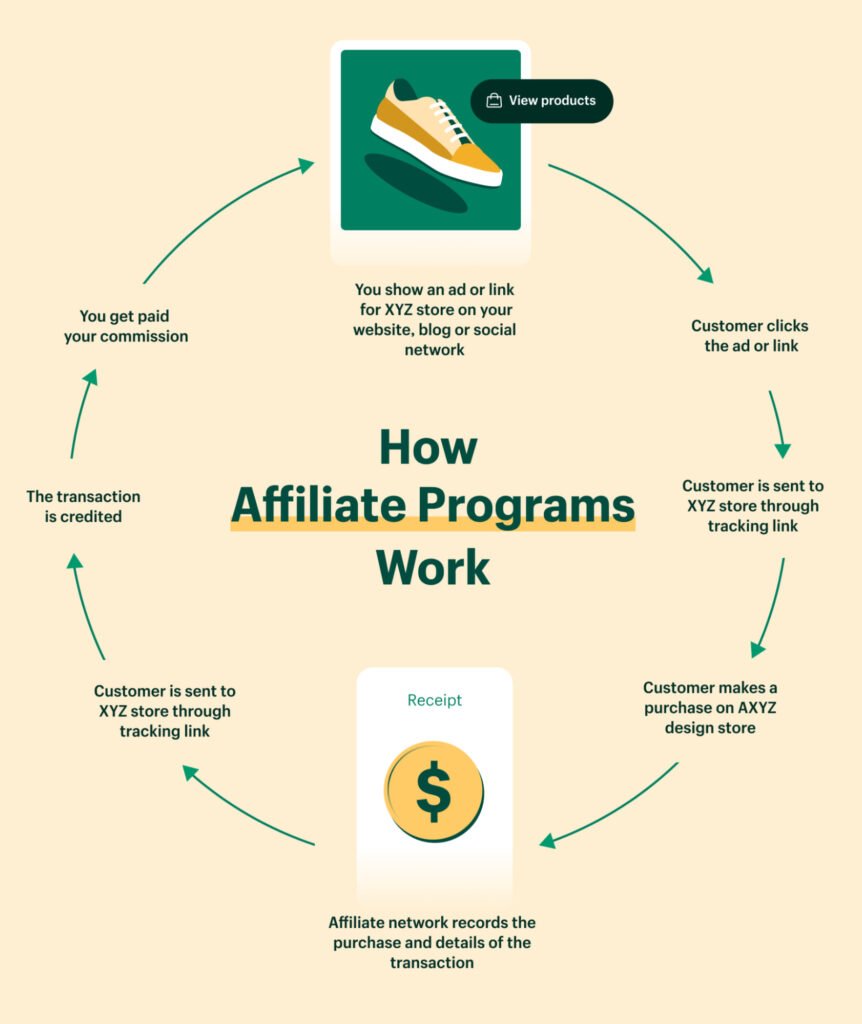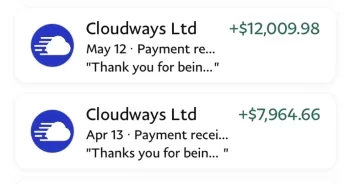Affiliate Marketer Understanding the Basics. With the rise of online businesses and digital marketing, the term “affiliate marketing” has become more prominent. But what exactly is affiliate marketing? Is it a legitimate business model or just another scam? In this article, we’ll dive into the world of affiliate marketing and explore its meaning, legitimacy, and potential for success.

Contents
Affiliate Marketer What Is
Affiliate marketing is a type of performance-based marketing. Where a company rewards an affiliate (a person or business) for each visitor or customer brought to their website through the affiliate’s marketing efforts. This can include various forms of advertising such as banner ads, text links, and product reviews. The affiliate earns a commission for each sale or referral made through their unique affiliate link.
In simpler terms, affiliate marketing is essentially a partnership between a company and an affiliate. Where the affiliate promotes the company’s products or services and earns a commission for any resulting sales or conversions. This is a win-win situation for both parties – the company gains exposure and potential customers, while the affiliate earns money for their efforts.

How Does Affiliate Marketer Work
The process of affiliate marketing typically involves four parties – the merchant (company/brand). The network (platform that connects merchants and affiliates), the affiliate, and the customer. Let’s break down how each of these parties plays a role in the affiliate marketing process:
- The Merchant: This is the company or brand that offers a product or service that they want to promote. They create an affiliate program where they provide affiliates with unique tracking links to track their referrals and sales.
- The Network: The network acts as a middleman between the merchant and the affiliates. Providing a platform for them to connect and manage their partnerships. Popular affiliate networks include Amazon Associates, ClickBank, and ShareASale.
- The Affiliate: The affiliate can be an individual or a business that promotes. The merchant’s products or services through various marketing channels. They earn a commission for each sale or conversion made through their unique affiliate link.
- The Customer: The customer is the end consumer who makes a purchase or takes a desired. Action on the merchant’s website, resulting in a commission for the affiliate.
Affiliate Marketer Is It Legit

With any form of online business, there will always be some level of skepticism and doubt. However, affiliate marketing is a legitimate business model that has been around for decades. The concept of affiliate marketing dates back to the 1990s. When Amazon first launched its associate program, and it has since evolved into a multi-billion dollar industry.
The legitimacy of affiliate marketing lies in its performance-based structure. Where affiliates only earn a commission when they successfully generate a sale or referral. This means that the merchant only pays for results, making it a cost-effective form of marketing for businesses. Additionally, with strict regulations and guidelines set by the Federal Trade Commission (FTC). Affiliates are required to disclose their relationship with the merchant to their audience. Ensuring transparency and trust between all parties involved.
Affiliate Marketer Good or Bad
Like any other business model. The success of affiliate marketing depends on various factors such as the quality of products or services being promoted. The affiliate’s marketing strategies, and the target audience. However, when done ethically and with proper research and effort, affiliate marketing can be a lucrative and sustainable source of income.
On the other hand, unethical practices, such as promoting low-quality products or using misleading tactics, can give affiliate marketing a bad reputation and potentially harm the trust between affiliates and their audience. Therefore, it is essential for affiliates to choose reputable merchants and promote products that align with their values and genuinely benefit their audience.
Affiliate Marketing What Is The Meaning

The meaning of affiliate marketing can be summed up as a partnership between a company and an affiliate, where the affiliate promotes the company’s products or services and earns a commission for any resulting sales or conversions. However, the concept of affiliate marketing has evolved over the years, and there are now several variations of this business model that offer different benefits and strategies.
Types of Affiliate Marketing
- Pay Per Sale (PPS): This is the most common type of affiliate marketing, where affiliates earn a commission for each sale made through their referral link.
- Pay Per Click (PPC): In this type of affiliate marketing, affiliates earn a commission for each click on their affiliate links, regardless of whether a sale is made or not.
- Pay Per Lead (PPL): With PPL, affiliates earn a commission for each lead they generate for the merchant, usually in the form of filling out a form or signing up for a free trial.
- Multi-Tier Affiliate Marketing: This type of affiliate marketing involves recruiting other affiliates to promote the same product or service, earning a commission not just for their own sales but also for the sales made by their recruited affiliates.
FAQs

1. Is affiliate marketing the same as MLM?
No, affiliate marketing and multi-level marketing (MLM) are two different business models. While both involve promoting products or services and earning a commission, MLM focuses on building a downline of recruits while affiliate marketing solely relies on promoting and advertising.
2. Do I need a website to be an affiliate marketer?
While having a website can make it easier to promote products and track results, it is not a requirement for affiliate marketing. Affiliates can also use social media, email marketing, and other online channels to promote products and earn commissions.
3. How much money can I make with affiliate marketing?
The amount of money you can make with affiliate marketing depends on various factors such as the commission rate, the quality and popularity of the products being promoted, and the affiliate’s marketing efforts. Some affiliates can make a few hundred dollars per month, while others earn six-figure incomes.
4. Do I need to be an expert in the niche to be an affiliate marketer?
While having knowledge and expertise in the niche you are promoting can be beneficial, it is not a requirement for affiliate marketing. Affiliates can also succeed by researching and understanding their target audience and the products or services they are promoting.
5. Is there a cost to become an affiliate marketer?
There is typically no cost to become an affiliate marketer as merchants usually provide their affiliate programs for free. However, some networks may charge a small fee for using their platform.
Conclusion

In conclusion, affiliate marketer is a legitimate, performance-based business model that has been around for decades and continues to evolve with the rise of digital marketing. It offers a win-win situation for both companies and affiliates, providing a cost-effective form of marketing for businesses and a potential source of income for individuals. With proper research, ethical practices, and dedication, affiliate marketing can be a successful venture for anyone looking to monetize their online presence.




















